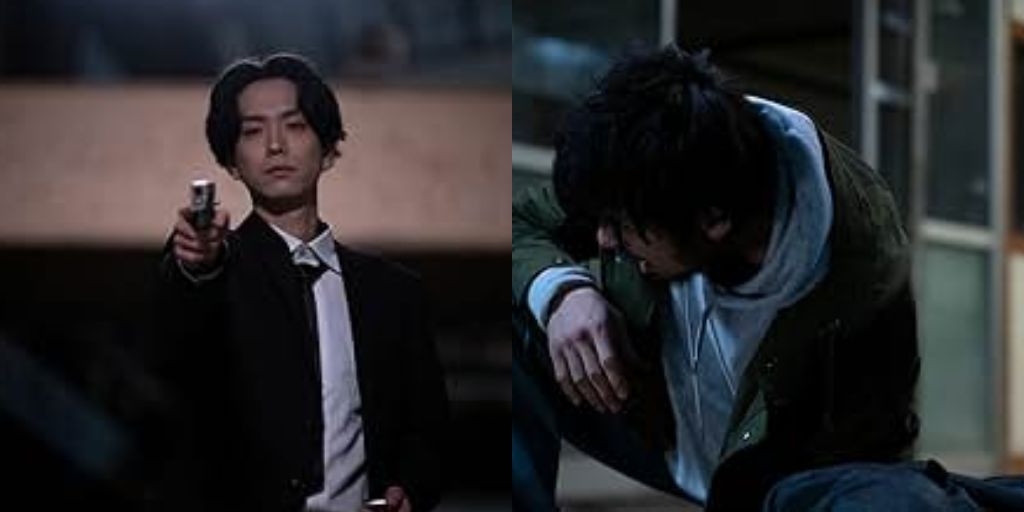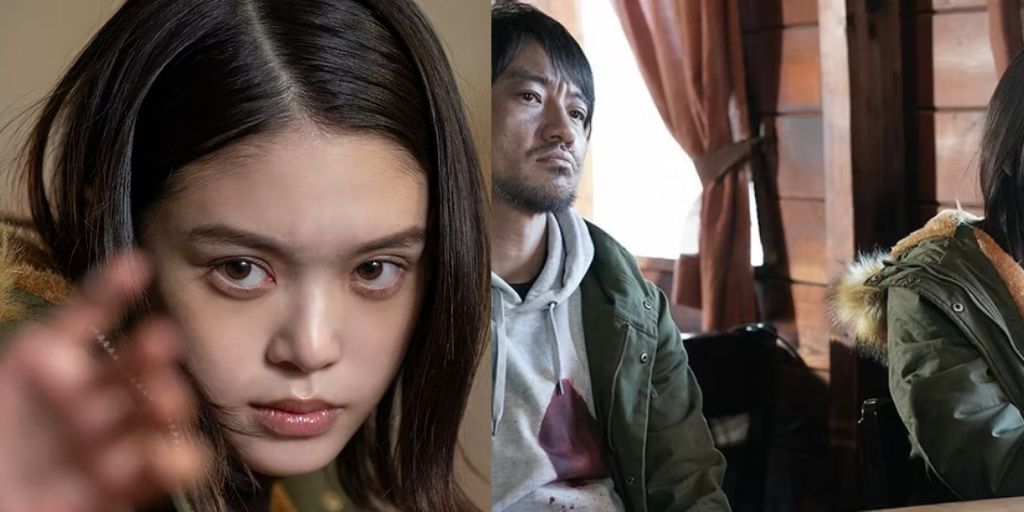Japanese action choreographer and stunt specialist Kensuke Sonomura has built a remarkable career in the film industry. He has contributed to a variety of projects, showcasing his talent in both movies and video games.
Notably, he has worked on films like The Machine Girl and the Baby Assassins series, which have garnered a cult following due to their unique blend of action and humor.
Additionally, Sonomura has lent his skills to popular video games such as Devil May Cry 4 and Metal Gear Solid 4: Guns of the Patriots, enhancing the gameplay experience with his expertise in fight choreography.
However, despite his extensive background in action choreography, Sonomura has directed relatively few films. This year’s Ghost Killer marks only his third film as a director. In this new project, Sonomura channels the influences of the filmmakers he has worked alongside, proving that he can do much more than choreograph fight scenes.
He creates a unique style that combines elements of comedy and drama with thrilling action sequences. The film’s co-writer, Yugo Sakamoto, who is also known for his work on Baby Assassins, lays the foundation for an unconventional action dramedy.
While the film features quirky sensibilities, it also suffers from some tonal inconsistencies and uneven pacing. Nevertheless, viewers may find these complaints less bothersome, as Sonomura delivers exhilarating action when it matters most.
What Is ‘Ghost Killer’ About?
In Ghost Killer, Akari Takaishi, who played a lead role in Baby Assassins, reunites with Sonomura. Takaishi portrays Fumika Matsuoka, a college student who avoids confrontation at all costs. Masanori Mimoto stars as Hideo Kudo, a decorated assassin with a dark past.
The two characters’ fates become intertwined when Kudo dies from a gunshot wound. Later, Fumika finds the bullet casing that caused his death.
To her surprise, she sees Kudo’s spirit appearing in her kitchen, leading to a shocking revelation. Fumika realizes she has a mysterious connection to Kudo’s ghost, allowing him to possess her body whenever they clasp hands.
As the story unfolds, Fumika and Kudo realize that Kudo has unfinished business. His spirit cannot rest until he avenges his own death. This twist adds a layer of depth to the narrative, making it not just an action film but a story about justice and redemption.
Fumika, despite her non-confrontational nature, becomes Kudo’s ally in his quest for vengeance. It’s a good thing that Kudo is available as a tag-team partner, as they fulfill the challenges of avenging his death together.
Like its predecessor, Baby Assassins, Ghost Killer is more than just an action movie; it incorporates elements of comedy and supernatural themes. Takaishi plays dual roles: she embodies both Fumika, the waitress at a skewer shop, and Kudo when he possesses her body.
While Kudo controls Fumika’s actions, she can still speak and express her emotions. This leads to humorous moments where Takaishi engages in comical arguments with herself while battling adversaries.
Fumika often expresses her disapproval of Kudo’s violent methods, even as her own hands cause injury to others. This dynamic maximizes the film’s comedic potential and allows for an scheme of morality within the action genre.
Sakamoto, who is known for his witty writing, crafts some clever jokes throughout the film. Meanwhile, Sonomura expertly executes his signature blend of rapid-fire slaps, kicks, and takedowns, all while Takaishi portrays the panic that comes from being possessed by a ghost. The combination of action and humor makes Ghost Killer a unique viewing experience.
‘Ghost Killer’s Shift From Comedy to Crime Drama Doesn’t Work
As Kudo and Fumika grow more attuned to each other’s personalities, the playful bickering and humorous protests gradually cease. The film shifts to a more straightforward thriller focused on Kudo’s quest for revenge against the “anti-social group” (the criminal gang) that ordered his execution.
However, this transition is not as enticing. The quirky paranormal activities fade away, and Fumika becomes more unified with Kudo. As a result, the storytelling developments that occur between intense confrontations feel stilted and lack excitement.
Kudo’s cocky apprentice, Toshihisa Kagehara, played by Mario Kuroba, aids Fumika in her and Kudo’s quest for vengeance. Kagehara hardly questions the unusual circumstances surrounding Kudo’s spirit.
While Kagehara’s support adds to the narrative, it also contributes to the film’s flatness when it shifts to a crime syndicate drama. Unlike Baby Assassins, which maintains a lively, bubblegum-poppy style filled with excitement, Ghost Killer struggles to retain that same energy.
The fight sequences in Ghost Killer hold their own, whether Fumika is beating drugging rapists or Kudo confronts his ex-syndicate’s top enforcer. Takaishi effectively keeps up with complex choreography, showcasing her character’s helplessness when not possessed and engaged in combat.

Mimoto’s performance is more polished and experienced, particularly visible during the climactic battle, which flows seamlessly through an extended combat sequence that is captured fluidly.
The steady cinematography avoids the shaky camera work often found in American action films, allowing viewers to appreciate the grace and intention behind each actor’s swift movements.
Despite the impressive fight choreography, some scenes feel repetitive due to the minimalist style employed. However, the action remains engaging, even in smaller doses. The third act, in particular, drags in parts, leaving a sense of déjà vu. The full pacing issues contribute to the film’s decline, impacting its effectiveness as a cohesive story.
Ghost Killer presents a tale of two haunted fighters: the energetic, comedic first half and the more subdued, serious second half. Takaishi shines as a pseudo-comedian, using humor to deliver impactful moments during fight scenes. The film is more enjoyable when it leans into its comedic elements rather than trying to adopt a serious tone.
Sonomura demonstrates his competence as a director and generally finds ways to merge elements of a CW show with invigorating Japanese action features. However, he faces challenges in finding the right balance between humor, vengeance, and existential themes.
The film’s thematic elements feel muted as they converge in a supernatural mix of regret, remorse, and retribution. Despite these shortcomings, Ghost Killer still manages to win over audiences with its engaging action sequences.
Ghost Killer is an intriguing film that offers a blend of action, comedy, and supernatural elements. While it faces challenges in pacing and tone, it ultimately provides an entertaining experience for viewers. The unique premise of Fumika and Kudo’s partnership creates moments of humor and action that keep the audience engaged.
Ghost Killer reminds us that even during chaos, there can be laughter and camaraderie, making it a memorable addition to the action genre.
Ghost Killer is an action-comedy film directed by Kensuke Sonomura, known for his work on projects like The Machine Girl and Baby Assassins.

The story follows Fumika Matsuoka, played by Akari Takaishi, a non-confrontational college student who becomes connected to the ghost of Hideo Kudo, a deceased assassin portrayed by Masanori Mimoto. Together, they seek vengeance against Kudo’s killers, leading to a mix of humorous banter and thrilling fight scenes.
While the film struggles with tonal shifts and pacing issues, it showcases impressive choreography and maintains an entertaining dynamic between its characters, ultimately delivering an engaging cinematic experience.




